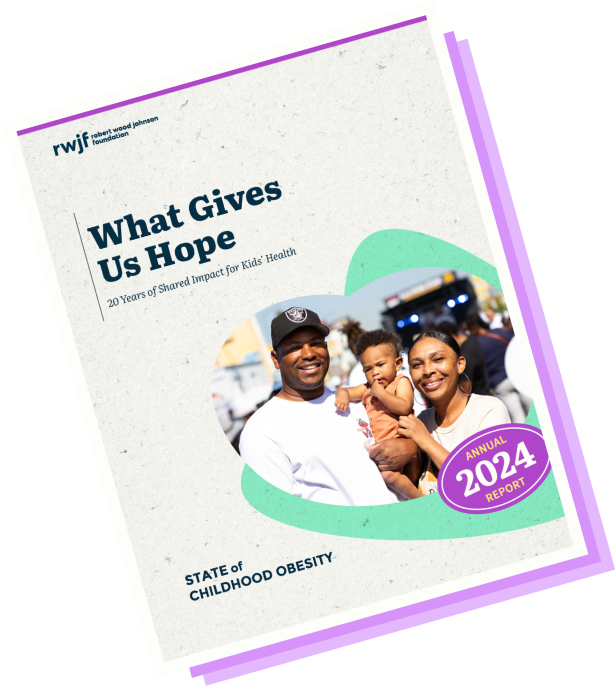Dear Friends,
It’s been a generation since the U.S. surgeon general issued a call to action to prevent and decrease obesity. And for nearly 20 years, the Robert Wood Johnson Foundation (RWJF) has been working alongside grantees, partners, and allies on this issue to address the root causes of childhood obesity and help all children grow up healthy.
What have we achieved together? How are children and families benefiting? What have we learned?
This report helps to answer these questions. It looks back at nearly two decades of collective work, including changes to federal nutrition policies that affect millions of children and major investments that impact communities nationwide and across our home state of New Jersey.
This year’s report also highlights current projects and features local leaders who are promoting homegrown solutions that build on their communities’ strengths to confront the challenges they face. We also hear from researchers and activists who are using new approaches to advance racial equity, including by measuring assets, instead of just analyzing deficits.
As I look back over the history of our commitment to address childhood obesity, I’m so heartened by all this work. What we have explored, accomplished, and learned together is being carried forward to help every child, family, and community thrive.
Looking ahead, we will announce our final round of grantees in early 2025, representing our last significant investment dedicated to addressing childhood obesity.
Our work on this issue has always centered on reshaping policies and systems to create a world where health is truly for everyone. And as I reflect on our political climate today, it’s clear that efforts like this are more important than ever.
At RWJF we believe health is a shared responsibility within our society and that it will take leaders at all levels to achieve health equity. We can work together to rebuild our systems and policies so they support health for all of us, not just a few.
I am grateful to all the experts, leaders, and advocates who contributed to this year’s report and excited for the opportunities ahead to build the future we all want for our children and grandchildren.
As always, we welcome your feedback. Please share your thoughts with us at [email protected].
Thank you.
In partnership,









